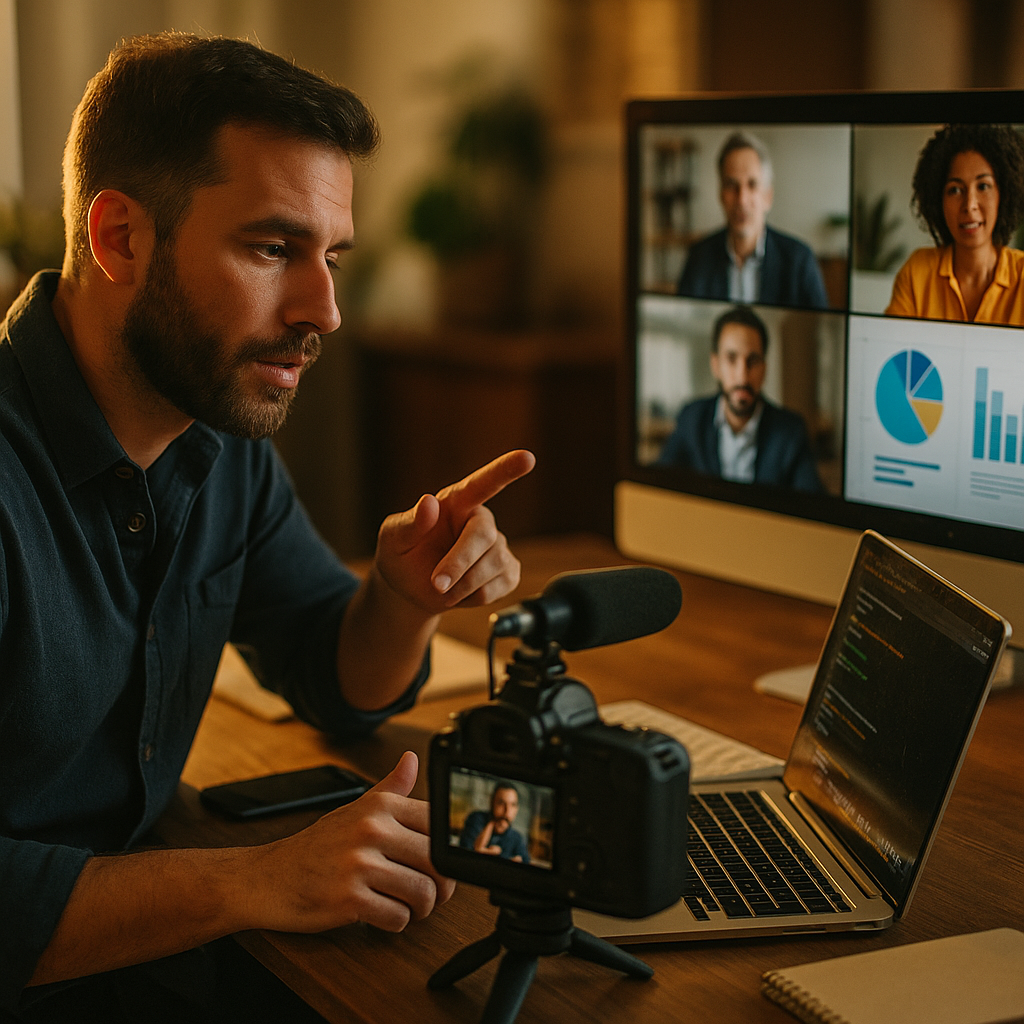Influencer marketing for enterprise software and B2B tech is fast becoming an essential strategy to drive brand awareness, trust, and demand for advanced solutions. As decision makers rely on credible voices, tech brands increasingly partner with respected industry influencers to connect and convert. Discover how you can harness this powerful approach for your B2B success.
Why B2B Tech Brands Are Embracing Influencer Marketing
Unlike consumer campaigns, enterprise software deals involve extensive research and lengthy sales cycles. Stakeholders, from CTOs to procurement leaders, demand proof and peer validation. Influencer marketing delivers by leveraging trusted experts and thought leaders to bridge the credibility gap. According to a 2025 LinkedIn B2B report, 64% of tech buyers consider expert opinions and influencer content as part of their vetting process.
This isn’t about celebrity endorsements. B2B tech influencers are seasoned practitioners, analysts, or consultants who understand complex solutions and communicate effectively with senior decision makers. They provide real-world case studies, independent reviews, and educational content, helping brands break through skepticism and technical jargon.
Identifying the Right Influencers for Enterprise Software
Success hinges on carefully selecting B2B influencers with legitimate expertise and true audience influence. Look beyond social media follower counts to find:
- Industry analysts: Gartner Magic Quadrant contributors, Forrester analysts, and IDC subject matter experts
- Practitioners: Renowned IT architects, CIOs, CISOs, and cloud strategists who actively share insights on platforms such as LinkedIn, Twitter, and niche tech forums
- Technical writers and podcasters: Authors of well-followed enterprise tech blogs, managed cloud experts, and hosts of respected B2B tech podcasts
- Micro-influencers: Rising professionals with specific expertise in verticals like fintech, healthcare IT, or cybersecurity
Screen candidates for consistent, high-EEAT (Experience, Expertise, Authority, and Trustworthiness) content. Collaborate with those who both align with your solution’s narrative and hold credibility in your target audience’s eyes.
Building High-Impact B2B Influencer Marketing Strategies
Enterprise software influencer campaigns are most successful when built on transparency, relevance, and measurable value. Consider these proven approaches that add both breadth and depth:
- Co-created content: Produce reports, whitepapers, or webinars featuring your tech and the influencer’s perspective for maximum reach and authority.
- Virtual and live events: Invite influencers to moderate panel discussions, deliver keynotes, or host roundtables at your industry conferences and online summits.
- Expert reviews and tutorials: Enable influencers to trial your SaaS solutions or platforms, sharing honest feedback through in-depth demos or blog series.
- Peer communities: Sponsor LinkedIn Live chats, exclusive Slack/Discord groups, or specialty forums driven by influencer hosts to foster networked learning.
Integrating influencers into your product launch or thought leadership calendar ensures your solution is always part of trending industry conversations.
Measuring Success: B2B Influencer Campaign ROI
B2B marketers must quantify influence with more nuanced metrics than likes and shares. Effective measurement encompasses:
- Lead quality and pipeline influence: Track sales-qualified leads or requests for demos and trials that originate from influencer-driven touchpoints.
- Share of voice: Analyze shifts in branded mentions across LinkedIn, industry news, and high-authority tech blogs post-campaign.
- Content engagement depth: Monitor time spent on influencer-authored landing pages, downloads of joint assets, or participation in influencer-led webinars.
- Sales acceleration: Attribute shortened deal cycles or higher average order values to influencer referral paths using CRM integration.
Transparent reporting with agreed KPIs enables enterprise tech brands to justify investment and refine tactics for continuous improvement.
Navigating Compliance and Disclosure in B2B Influencer Engagement
Enterprise software influencer marketing must adhere to high ethical and legal standards. In 2025, industry regulators and sophisticated audiences demand full transparency. B2B tech brands should secure explicit written agreements outlining:
- Disclosure requirements (for sponsored content or paid collaborations)
- Intellectual property rights over co-developed assets
- Clear conflict of interest and non-compete clauses
- Guidelines ensuring influencer opinions remain honest and independent
The credibility that makes an influencer valuable can be undermined by perceived bias or hidden sponsorships. Trust is non-negotiable in enterprise technology marketing.
Future Trends: AI, Community Building, and Micro-Influencers in Enterprise Tech
The B2B influencer marketing landscape is evolving rapidly. AI-powered analytics help brands identify new voices and optimize messaging for hyper-targeted enterprise segments. Community-driven strategies—such as technical AMAs (Ask Me Anything) or peer forums—are gaining traction as decision makers seek authentic, interactive knowledge-sharing environments.
Meanwhile, micro-influencers are rising in importance. These specialists bring deep subject-matter authority and personal engagement, driving real impacts on specific buyer journeys—especially in vertical SaaS markets and regulated industries. Forward-thinking tech brands are already investing here for long-term differentiation and loyalty.
Influencer marketing for enterprise software and B2B tech bridges trust gaps, speeds adoption, and builds brand authority in a crowded market. By aligning with industry experts and focusing on value-led engagement, you can transform your enterprise marketing outcomes.
Frequently Asked Questions about Influencer Marketing for Enterprise Software and B2B Tech
-
How do I find real B2B tech influencers?
Use LinkedIn, industry events, and analysis tools like BuzzSumo to identify practitioners respected by your target audience. Check their content for depth, engagement, and relevance to your solution area.
-
How is B2B influencer marketing different from B2C?
B2B focuses less on celebrity reach and more on credibility, expertise, and peer trust. Content is highly technical, long-form, and designed for group decision making and complex sales cycles.
-
What are typical costs for B2B influencer campaigns?
Budgets vary widely. Micro-influencers may participate in exchange for product access or event visibility, while top-tier experts or analysts can command $10,000+ per project or keynote. Prioritize value over spend.
-
Is it necessary to disclose paid influencer content?
Yes. Regulatory guidelines and industry best practices in 2025 require full disclosure, building trust and avoiding legal or reputational risks.
-
How soon can I expect ROI from these campaigns?
B2B deals are complex, but well-executed influencer programs often influence pipeline within 2-6 months. Track both direct lead generation and indirect metrics such as share of voice and brand reputation.
